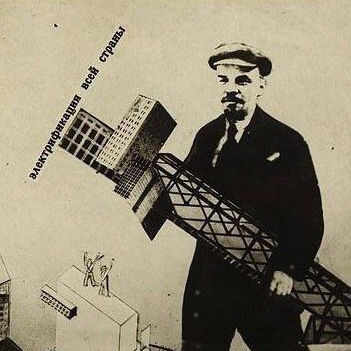I hear “No problem” far more often.
I don’t care.
Years ago, I had to do customer service training for a job, and one thing they said is to always say “you’re welcome” instead of “no problem”, because some people think “no problem” is rude. But I think it’s a generational thing, and it’s kind of the opposite with younger folks.
But what about “No problem at all”?
I think a lot of younger generation, myself included, prefer casual responses, conflating professionalism with being rude, slimy, or otherwise malintentioned
No worries.
I have a friend who loses his mind when anyone uses this (who isn’t Australian.) He is also not Australian, not sure what his burden is
Hit him with a “No wukkas mate” that will sort him right out
I go with “no wuckin furries”.
Has he seen “The Lion King”?
Quiet, you fool!
I’m now weirdly self-aware of how often I say that. It is probably better if I don’t meet your friend.
explanation I got long ago was that “No worries” was reserved when the situation was so bad, nothing you did would change things – sit back, “No worries”, crack a beer, and enjoy the spectacle
All good
You got it.
My pleasure.
Anything for you 😉
Gotta add a ‘daddy’ at the end for maximum effect.
Anything for you, Papa Top Ramen Bin Laden
Anytime!
Cup my balls!
Sorry, that might be regional…
I’ll just walk around saying thank you to everyone.
As you wish
Of course. Sure thing. Anytime. No sweat. You[‘re] good. Happy to help.
Too easy!
This is my go to. Picked it up when I was in AUS for a while and it has never left my lexicon.
I’ve been making an effort to use “happy to help” at work, instead of “no problem” because I was also informed it’s a generational thing.
For paid service I like the simple “of course” recognizing that is what I’m here for and it’s normal. No faux generosity nor implication of a tolerated imposition.
During my years in retail exactly one customer ever had a problem with me saying “no problem”. He also said he was an assassin. That’s not a joke. This old, fat boomer said I shouldn’t say ‘no problem’ because some people might take it to mean ‘yes problem’ and then told me he kills people for a living.
That’s the stability of people that can’t understand the meaning of words. If I go to a police station and say I am a serial killer vs I’m not a serial killer, I don’t expect them to react the same…
I had to do one communucation trainung where the trainer saud that saying “no problem” should not be used, because it implies there might’ve been a problem. I was not convinced though.
Wow. facepalm The words literally say there’s no problem, and yet it somehow implies there is a problem? Talk about overthinking what someone is saying.
This is why I often hate neurotypical communication styles. The world would be a lot more straightforward if people just said what they meant. Jesus fucking Christ on a motorbike…
Then why are people tripping about saying “you’re welcome”?
It doesn’t imply that there is a problem. It implies that there would have been a problem, if it hadn’t been generously waived by the “no problem”.
… would be quite a sight to see. Although if He can do all those other miracles, I guess fucking Himself on a motorcycle wouldn’t be impossible. So I guess it’s just a straightforward statement on your part.
............I ship it.
Then “your welcome” implies you might not be welcome. Seems like either both work or both are problematic, he can’t have it both ways.
Agreed. Might also be because “problem” is a word with negative conotation? Idk, I don’t see a problem (hah) myself
Someone said that to me just the other day! That saying “no problem” implies there might be a problem. Crazy. I’m thinking of switching to “well it was quite an imposition on my time and energy to help you out, especially given you’re not paying me, but I’ll let it slide this time because you seem like an ok person and I’m in a good mood” just to annoy them.
I doubt that would annoy them more than “no problem” since it is perfectly in line with what they think you’re saying by “no problem”.
I think we collectively decided that “you’re welcome” doesn’t make sense. Welcome to what??
you’re whale cum
Welcome to what??
Isn’t that obvious? You’re welcome to the thing you received. The thing you are thanking them for.
Maybe it’s “you are welcome (to ask me for help/favors, as I am neutral to the task. I might even enjoy it.)”
And “it’s not a problem (for me to do what you asked me to do; we have now both acknowledged that I have done something to help you that was not organic to me, but now we can move past it with no further conversation.)”
I bet “no problem” to some people is like seeing someone wear a T-shirt to church. They’d really prefer it if you would put on a suit and tie, even though the purpose of both are the same (cover my body when away from home because that is our current social agreement), because a T-shirt is disrespectful.
Also everyone sucks, it is a problem, and you are not welcome.
“You’re welcome to my help” is basically the point. You are welcome to my generosity/assistance.
Implying that it was an effort, but you are welcome to it. Whereas “no problem” denotes that the effort is was not a problem for me to do. I use them interchangeably - “you’re welcome” as a response to a complement, or something where there was moderate effort put into the task; “no problem” when the task was low effort (“Thanks for responding to that email so quickly”) or I feel my effort was obliged (helping pick up after a meeting).
Actually “no problem” implies that the thing would normally be a problem, but that you are negating that.
It’s like saying “No visible bruising”. There’s the implication something happened that might have caused bruising.
to impose on me duh
Nothing is worse than other options though like Chic fil a’s mandated “my pleasure”
When a chic-fil-a worker hits you with that, you gotta one-up them with “No! The pleasure is all mine!” and then hit the gas, peeling out cackling because you stole that pleasure motherfuckaaaaah.
(Or better, don’t go to chic-fil-a)
I told a bartender “oh, the pleasure was all ours!” one time just sort of joking around and he said “you have no idea how much”. I wasn’t really sure how to take that.
I would be wondering what I did to make his job more difficult.
Yeah, I saw a few intepretations:
- he was joking
- he hates his job and all of the customers
- he hated us in particular (there’d be no reason why though, my gf and I showed up, had a couple glasses of wine, didn’t complain that one had gnats in it, got rained on on the patio, went inside and paid and I had just finished tipping 25-30%)
OH YEAH I"M GETTING PLEASURE TOO!
I have just recently chosen to revive it. I’m not really sure why. I presume it’s a matter of arbitrary fashion either way.
I usually say “of course” or “absolutely” instead of “you’re welcome” or “no problem.”
“My pleasure” is another alternative. I helped you because it makes me feel good, so you’re doing me the favor.
Obsequious in a business setting, but nice in a social situation.
I see “no problem” as nicer. If I say that, I’m expressing that I really don’t mind, and there’s no need to thank me. No problem, as in I had no problem with doing this thing
“You’re welcome” feels more like “I appreciate you thanking me, because I went out of my way to do this”, if that makes any sense
Except “no problem” traditionally means “no problem [despite this situation containing a likely problem]”.
It means the person being thanked has gone outside their set of responsibilities to help you.
Like “Thanks for letting us borrow your spare tire so we could get our car back to town” -> “no problem”.
Here the other person had no responsibility to help with the others’ flat tire, much less lend out a piece of their own safety equipment.
“You’re welcome” is the one which means “It is perfectly expected in our current roles that I would have provided this”.
And I see it totally opposite. Interesting.
Also, can you cite this “traditionally” you reference?
I go to DMV. “You need a number to be in this line”. “My mistake. Where do I get this number?” “Over there.” “Oh, I see, thank you.” “You’re welcome.”
Wow, because the DMV uses it? Thanks for the source! Wait, I’ve heard a person at the DMV say “no problem” before…
Also, I was asking the original commenter about the “traditional” use of “no problem”.
Huh, to me, YW is much more gracious and positive that you’re happy to do it, while NP is more like “it was a tolerable burden”.
Though for paid service I don’t like expected faux enthusiasm. I think “of course” is classy and not demeaning then, meaning “it’s what I’m here for”.
In German, “you’re welcome” means “gern geschehen” which can be translated back to “I did it gladly”. So yea, I also think YW is very positive
Duolingo taught me “wilkommen” for “welcome.” Is that used IRL?
No, not in the context of “you’re welcome”. Wilkommen is only used for saying e.g. “welcome home”
Thanks!
See, that’s much closer to “(It was) my pleasure”, which is a valid English response (though these days it puts people in the mind of “Chick-fil-A employee”) than it is “You’re welcome”.
Hmm, honestly the word itself is uncommon now, at least where I live. I wonder if that’s related.
To me, by default “welcome” means to a place. “You’re welcome to the cookies” sounds archaic or British or something.
“Archaic or British” as a Brit, losing my mind at how accurate this is
Sort of. Fun fact, pronunciation-wise, American English is actually more conservative. Liz the first probably sounded like a yank.
You can find recordings of very old British speakers where, to my ear at least, it’s noticeable.
Oh, yeah, I’m quite aware of this fact. Blew my mind when I found out the first time.
I don’t say it because you are, in fact, not welcome. I finish interactions with customers, even when they say thank you to me, by saying “thank you, have a nice day”, as my non fireable version of “I’ll thank you to kindly fuck off now.”
thank you, come again.
Damn it must suck to hate your customers
You say, as if that sentiment isn’t nearly universal.
I saw a post a while back that said millennials use “no problem” instead of “you’re welcome” because no problem signifies the act was of little effort and was no problem to do. However, “you’re welcome” implies entitlement, as in you are welcomed to my time and effort, or some shit. I don’t remember, but yeah, just a “generational thing.”
So yeah it’s a “can I speak to your manager” boomer thing, as usual. Only group I ever see getting their panties in a wad over a phrase. Just like “Merry Christmas” changing to “Happy Holidays” erases their religion or dares to put other similar holidays, in the same approximate time of the year on equal footing, making their religious holiday less significant.
I think to a lot of younger people, “You’re Welcome” is the thing one older person insisted you say when you absolutely do not actually mean it. So younger people have found something else to say when they actually do mean it.
I hate “no problem”. It implies you’ve imposed somehow on the other person.
If somebody is thanking you, you likely exerted effort on their behalf. So they say “thank you” for exerting effort, and then you respond with exerting effort was “no problem” you don’t need to thank me. You’re welcome would be a response more along the lines of “you are welcome” to make me exert effort.
They’re both fine, and it’s both a generational and locational thing. I personally prefer “no problem” because honestly I don’t mind helping, but I’m also not giving you permission to use my effort at any time. You can have my efforts when it doesn’t cause a problem.
Here’s a response I’ve seen about this around the net for a while now that feels right.
–
"Actually, the “you’re welcome/no problem” issue is simply a linguistics misunderstanding. Older ppl tend to say “you’re welcome,” younger ppl tend to say “no problem.” This is because for older people the act of helping or assisting someone is seen as a task that is not expected of them, but is them doing extra, so it’s them saying, ‘I accept your thanks because I know I deserve it.”
“No problem, however, is used because younger people feel not only that helping or assisting someone is a given and expected but also that it should be stressed that your need for help was no burden to them (even if it was).”
“Basically, older people think help is a gift you give, younger people think help is a requirement.”
That’s some stereotyping ageist bullshit.
As a not-so-young-anymore young person, I’ve always said “no problem” for exactly this reason
To be fair, with no data to back it up, this is just an anecdote. So saying it’s stereotyping ageist bullshit is a perfectly valid response to it. I just felt it fit the question quite well so I went and dug it up and shared it. If you feel differently, no stress!
The reality is going to be different to everyone, and it’s as much a learned behaviour as anything else. It’s not like collectively an entire generation got together and decided “it’s ‘no problem’ now instead of ‘you’re welcome’, okay?” Language evolves over time after all, and knowing why that happens and the actual causes for it are something that will require a lot more analysis than a couple of anecdotes from the internet.
Yeah, sorry, I should add that I refer to the article, not your posting of it.
The meat of the thing is a rando reply to a tweet by a guy, not any research the guy did.
calling it a “linguistics misunderstanding” makes it seem more scientific than it probably is. I’d like to see some evidence to back it up, because to me it just looks like some Tumblr user’s conjecture.
and yet the youngers are the “entitled generation”
Most languages respond something like “it’s nothing”, de nada. English is a little weird saying “welcome”.
Thai/Lao is ไม่เป็นไร/ບໍ່ເປັນຫຍັງ translated as (implied subject “it”) + negation marker + copula + anything or “it’s nothing”
Swedish says “varsågod” (literally something like “be so good”). Finnish developed social courtesies relatively late, and so translated the Swedish literally to “ole hyvä”. Russian on the other hand uses пожалуйста (pozhaluysta). Don’t know exactly where this last word came from, but nowadays it’s used the same way as “please” as in “please, no thanks needed”
Can I please (pozhaluysta) have this cake?
Yes, here you go.
Thank you!
Please (pozhaluysta)
It varies regionally. While “you’re welcome” is not at all unusual in the UK, it’s nowhere near as expected and standard as it is in the US.
I often hear “not at all” as a response, just like “de nada”. It’s also common in the UK not to respond at all, as the thanks are expected.
Well, in German we say “bitte” or “gern geschehen”, which is close to the “welcome”. Of course, people can and do also say “kein Problem”. I guess in my experience it depends on how I feel about the task and the person I did it for.
Time to adopt a jaunty wink, finger guns, and a hearty “You got it, sport!” as the default response. What could possibly go wrong?

























